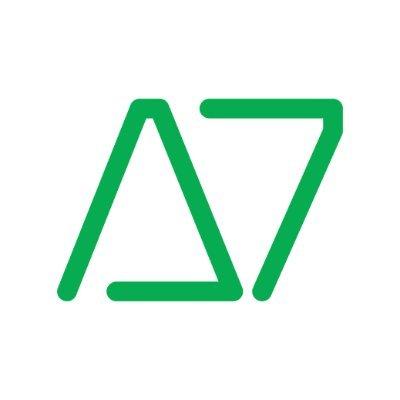Invest in private assets
Invest in rental homes
Investments
$10
Fundrise allows a minimum investment of $10 for taxable accounts and $1,000 for IRAs.
Moderate Risk
3/5
Investing with Fundrise involves risks such as limited liquidity, potential modifications to the share repurchase program, market volatility affecting asset values, the possibility of total investment loss, and regulatory changes impacting operations.
Moderate Risk
3/5
Investing on Ark7 carries risks such as market volatility, property value fluctuations, economic impacts, and potential liquidity challenges in the secondary market.
Minimum Liquidity
1/5
Fundrise offers liquidity through its share repurchase program, allowing investors to redeem shares quarterly with no penalties or costs.
Moderate Liquidity
2/5
Ark7 allows investors to sell their shares on a secondary market after a minimum holding period of one year, providing liquidity.
Receive new reviews from Fintorial
Low Return
4.81 %
Investors on Fundrise can expect returns through dividends and appreciation, with an average income return of 4.81% over 7 years.
Low Return
3.22-6.96 %
Ark7 offers annualized cash return rates between 3.22% to 6.96%, or $0.1 to $0.58 per share, based on past performance or estimates for newer properties.
Long-term Investment
5+ years
Fundrise is designed for long-term investments, ideally for a period of 5 or more years, due to its focus on strategies aimed at long-term return potential.
Long-term Investment
1+ year
Ark7 targets long-term investments in real estate for appreciation but allows selling shares after a minimum holding period for flexibility.
Who can invest
United States
To be eligible to invest with Fundrise, individuals must meet several criteria: they must be at least 18 years old, have permanent residency in the United States, possess a valid U.S. tax ID, and file taxes in the U.S. The platform is open to both accredited and non-accredited investors.
Who can invest
United States
Ark7 is open to U.S. citizens or residents over 18 with an SSN or ITIN and a U.S. bank account. Select offerings are for accredited investors only.
Moderate Volatility
3/5
Assets on the Fundrise platform, such as private real estate and venture capital, typically show lower volatility compared to public stocks and bonds, due to less frequent valuation updates and reduced exposure to daily market swings.
Moderate Volatility
3/5
Assets on Ark7 exhibit volatility influenced by real estate market shifts, economic conditions, and demand fluctuations. While real estate is generally stable, values and rental incomes can vary. Additionally, liquidity and market demand on the secondary market may affect share prices and selling ease.
Regulation and audits
SEC Regulated
Fundrise is regulated by the SEC and must comply with strict reporting, disclosure, and operational standards. It undergoes regular independent audits to verify financial accuracy, legal compliance, and the effectiveness of its internal controls, ensuring transparency and integrity in its operations for investor protection.
Regulation and audits
SEC Regulated
Ark7 complies with SEC regulations, making necessary filings for transparency and undergoes regular independent audits for financial accuracy and operational compliance.
Insurance
No
Investments on Fundrise, including real estate and alternative assets, are not insured by the FDIC or any other government agency, exposing investors to the risk of loss without insurance protection.
Insurance
Yes
Ark7 secures comprehensive insurance for all properties, covering natural disasters, property damage, and liability, to protect investors' returns and mitigate financial risks.
Payouts
Dividends
Dividends are paid quarterly, based on income from portfolio projects, and can be either reinvested or cashed out. Appreciation comes from increases in the value of the investment, reflected in the net asset value (NAV) of shares. Returns start accruing after investment settlement, typically within 5 business days, and can be tracked on the Investor Dashboard.
Payouts
Dividends
Ark7 offers returns through monthly cash distributions from rental income, after deducting operating expenses, and long-term property appreciation. Distributions are prorated based on shares owned and deposited monthly. Property appreciation potential comes from home value gains, with shares sellable on the secondary market after a holding period. Monthly distribution amounts may vary due to operational factors.
Withdrawals
To withdraw funds from Fundrise, investors must submit a liquidation request. Liquidations are reviewed quarterly for most funds, with a waiting period for the eFund. No penalty is charged for liquidating shares from the Flagship, Income, or Innovation Funds, but eREIT and eFund shares held for less than five years may incur a penalty. Liquidations are processed on a "First in, first out" basis.
Withdrawals
Investors can get their money back by selling their shares on Ark7's secondary market after a minimum one-year holding period or through property appreciation when they sell their shares.
Extra Fees
Yes
Fundrise charges a 0.15% annual advisory fee, a 0.85% management fee for real estate funds, and a 1.85% management fee for the Innovation Fund. Early liquidation of eREIT or eFund shares before 5 years incurs a 1% penalty.
Extra Fees
Yes
Ark7 charges a one-time 3% sourcing fee of the property market cap for acquiring and listing properties, and a monthly asset management fee of 8-15% of rental income for property and tenant management.
Taxes
Tax Form
Fundrise investors can expect Form 1099-DIV for eREITs or interval funds with distributions over $10, Schedule K-1 for eFund shares, and Form 1099-B for liquidated shares. Tax documents are issued at the end of January for 1099-DIVs and mid-March for K-1s, available on the investor dashboard. Multiple funds in a portfolio may result in receiving multiple tax forms.
Taxes
Tax Form
Ark7 issues Schedule K-1 forms for properties taxed as partnerships and plans to issue 1099-DIV for properties treated as REITs, aiming to transition as they open to the public. Tax documents are sent before March 15th, considering depreciation and expenses to potentially reduce taxable income for investors.

